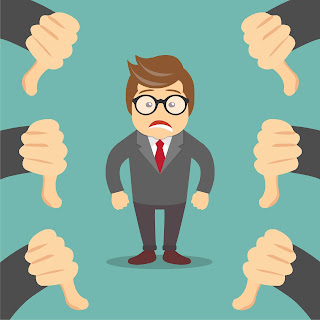MANAGING STIGMA IN DEVELOPING
COUNTRIES
 |
| Representation of Stigma Designed by Makyzz / Freepik |
“One in four people in the world will be affected by mental or neurological disorders at some point in their lives,” This is according to the UN meeting, Geneva, 4th October. The Mental Health Policy 2015-2030, coinciding with the position of UN that one in every four Kenyans will be a patient to the above account. This implies that most of us are patients of mental disorders in waiting, yet when allocating country budgets the amount is not substantial especially towards mental health. In a study in 2017, of over 19,000 people in 16 countries showed poor attitudes about seeking treatment, 39% think that seeking help would mean losing friends, 49% think seeking help would mean limited opportunities. Feeding our worry of seeking help with the dogma of losing friends.
As governments are engaged with fighting the Coronavirus, other conditions and disorders have been given minimal attention. Success stories on COVID-19 are present too, Taiwan recorded only 429 cases with 6 deaths but since mid-April, they have recorded zero infections. This country was the first to stop flights from Wuhan and took all precautionary measures fast enough, without even imposing a lockdown they have flattened the curve. New Zealand in an exemplary manner has eradicated the Coronavirus within its borders.
 |
| Medicinal drugs for the treatment of patients |
Regardless of having mental health issues being part of life, many are yet to come into terms with reality. There is fear for falling sick and dying from the diseases, avoiding health care facilities for fear of contraction, loneliness, and depression due to being isolated, fear of being socially excluded among other fears are present in most Kenyans. The risk of being affected has affected the social interactions in our communities hence increasing chances of depression, although some hotspots are behaving on the contrary. Incase caregivers are isolated in quarantine facilities; it creates deterioration of mental and physical health from the vulnerable members of the community like the elder generation and persons with disabilities.
 |
| Personal protective pieces of equipment |
It is okay to feel sad during a crisis, but take chances and contact people you trust among friends and family. If you must stay home then make sure you follow a healthy diet and don’t forget exercise. If you are overwhelmed then seek help from a health care worker. Times are changing and change is inevitable; furthermore, time waits for none. Develop and nurture new skills that will help you grow as a person holistically. Personally, I have engaged in writing articles, creating content, doing voice-overs, and enjoying journalism by mixing business with pleasure. There’s richness in emancipating yourself from mental slavery, the redemption song by Bob Marley puts it in perspective.



Its so true the government needs ti invest in mental health
ReplyDeleteFor sure. Thanks for reading 🙏
DeleteIndeed it's a very true story
ReplyDeleteThanks 🙏 for reading.
DeleteThere’s richness in emancipating yourself from mental slavery- loved it 👏🏾
ReplyDeleteThanks for the feedback 👍.
DeleteGood insight on wellness
ReplyDeleteThanks for dropping by 🙏
ReplyDeleteWell said.
ReplyDeleteThe conversation on mental health needs to be normalized.
Indeed, it's high time we do. Thanks for reading 🙏
Delete